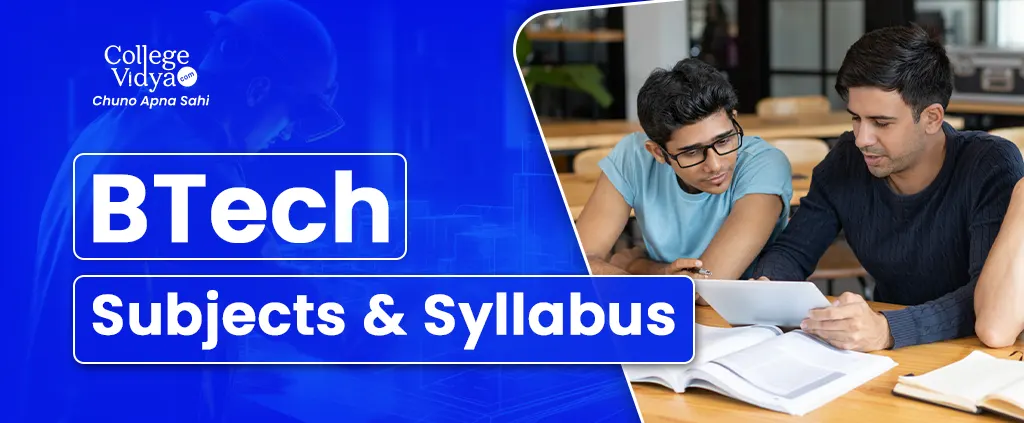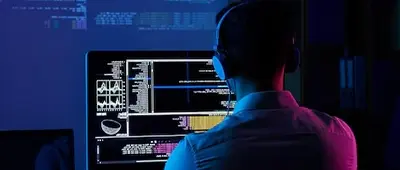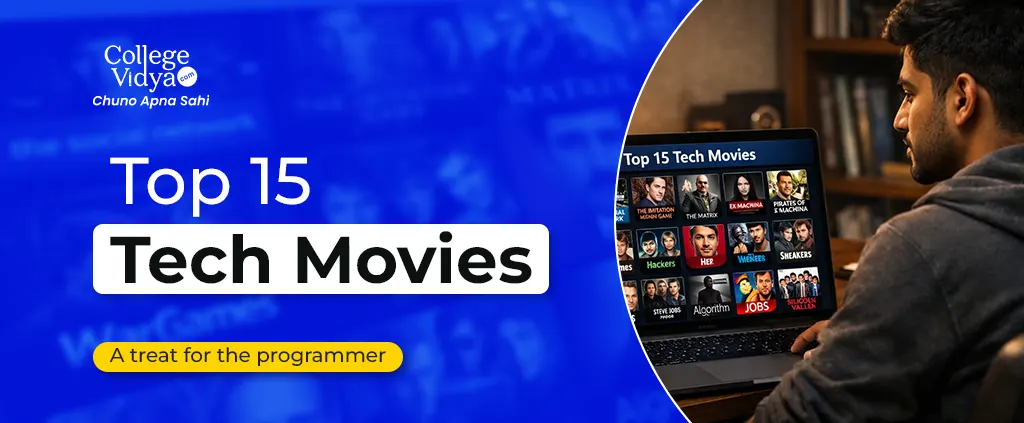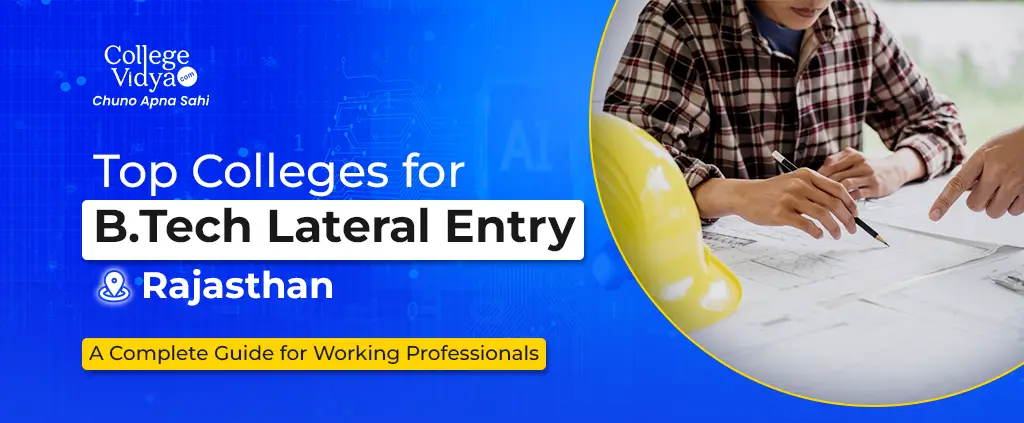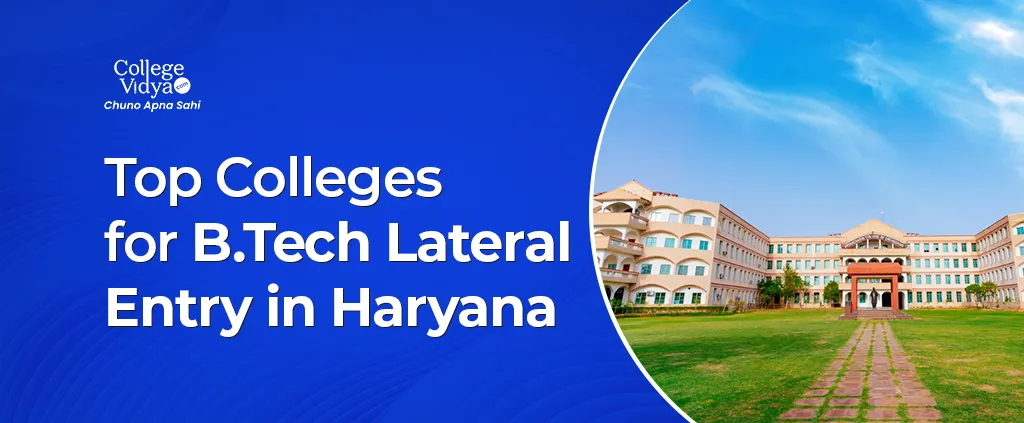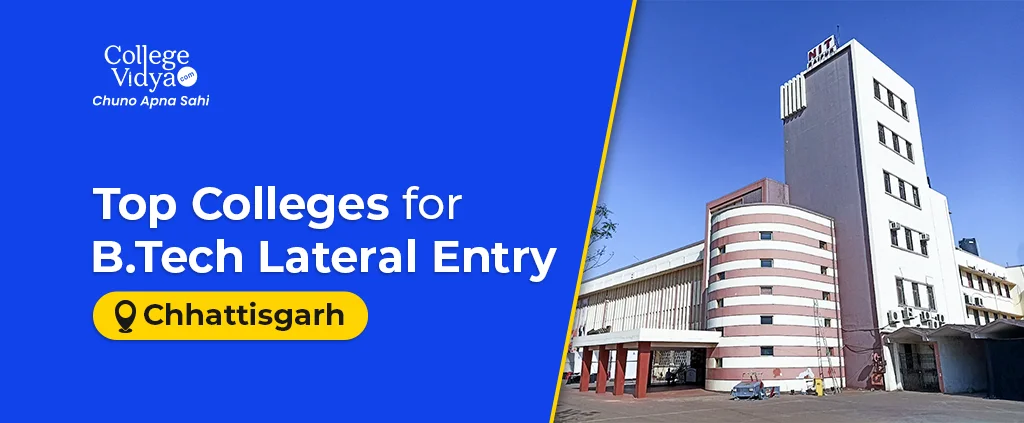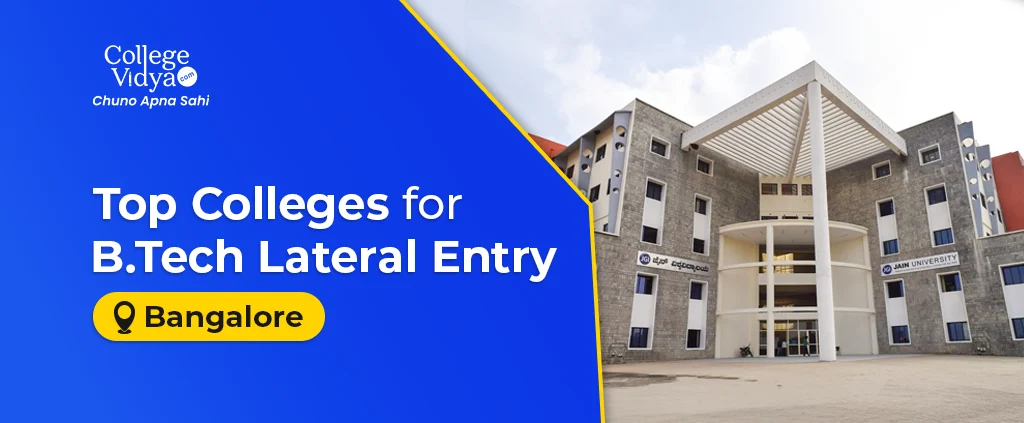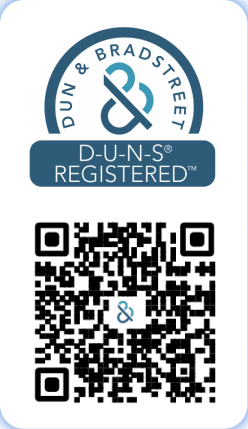Bachelor in Technology (BTech) is a four-year technical graduation program. Before admission, aspirants need to know about the program for which they are enrolling so they can make up their minds what they have to study.
This helps students to choose the program wisely based on their area of interest. If planning to enroll in the BTech courses, one must know that it is a technical course that demands quick learning plus innovative skills.
BTech Course Details: Highlights
|
Particulars |
Details |
|
BTech Full Form |
Bachelor of Technology |
|
BTech Degree |
Graduation Program |
|
B Tech Duration |
3 years/4 years |
|
B Tech Specialisations |
Civil Engineering, Artificial Intelligence and Machine Learning, Mechanical Engineering, Computer Science Engineering, Electrical Engineering and Biochemical Engineering |
|
B Tech Fee |
INR 20,000 - 19 lakh |
|
B Tech Top Colleges |
IIT Bombay, IIT Delhi, DTU, Jadavpur University, Jamia Millia Islamia |
|
B Tech Average Salary |
INR 4 - 20 LPA (Estimation) |
|
B Tech Career Scope |
Chemical Engineer, Computer Science Engineer, Research Associate, Professor or Mechanical Engineer |
|
B Tech Entrance Exams |
JEE Main, JEE Advanced, WBJEE, KEAM, MHT CET, AP EAMCET and TS EAMCET |
BTech Syllabus: Important Facts
The four-year program is divided into 8 semesters if applied after the 12th. However, it is a three-year program when enrolled after a polytechnic certificate.
Rather than focusing just on theoretical knowledge, the engineering program emphasizes equally on practical and laboratory-based learning. Theoretical knowledge is limited in engineering graduation programs. So the Syllabus of BTech comprises core, elective, and lab subjects.
- Core Subjects: BTech Core subjects are those engineering subjects that learners have to study regardless of their specializations. In other words, all students enrolled for any specialization have to cover core subjects. The core subjects include Mathematics, Physics, Chemistry, Engineering Drawing and Graphics, and foundational engineering courses such as Mechanics, Electronics, Programming, etc. These subjects are covered between the first and fourth semesters.
List of the BTech Core Subjects & Syllabus :
|
BTech Core Subject |
Subject Details |
|
Mathematics |
This subject's purpose is to introduce the concepts of Calculus, Calculus of Several Variables, Vector Calculus, and Ordinary Differential Equations. |
|
Physics |
This subject familiarizes the students with classical physics, which includes Lagrangian mechanics, Demand and Forced Oscillations, Electromagnetic Waves and Optics: Maxwell's equations, Galilean and Lorentz transformations, etc. |
|
Chemistry |
The aim of teaching this subject is to make students understand concepts like Energy & Kinetics, Equilibrium, Rodex & electrochemistry, Bonding Models and Properties, Industrial & Bio-inspired Chemistry, Molecules in daily life, etc. |
|
Mechanics |
This subject students grasp the concepts of Force Systems, Equilibrium, Friction, Kinematics and Kinetics of Particles, Properties of Areas, Concept of Stress and Strain, Torsion, Flexural Loading, Transformation of Stress-Strain, Combined Loading, Column, etc. |
|
Programming and Data Structures |
This subject helps acquire knowledge among students related to computer concepts and their environment, Conditionals and Branching, Iteration, Functions, Recursion, Arrays, Structures, Binary Trees, Stacks and Queues, etc. |
|
Electrical Technology |
This subject helps conceptualization of energy sources, Power Transmission, Superposition Principle, Thevenin's and Norton's Theorems, EMF Equation, Phasor Diagram, Electrical Measuring Instruments, Transformers, Magnetic Circuits, etc. |
Core BTech Syllabus From specializations
These are the core major subjects of engineering that are mandatory for the holistic development of engineers :
|
Subject title |
Subject Details |
|
Mechanical Engineering
|
Mechanical Engineering core subjects essential for students to learn concepts of (i) stability of floating bodies, linear momentum and energy, moody diagram, hydraulic diameter, (ii)gating and risering, melting furnaces, metallurgical characteristics of welding joints, principles of powder forming, etc. |
|
Civil Engineering:
|
These are the core subjects in Civil Engineering, which allows students to learn about (i) formation, compressibility, and consolidation of soils, sheer strength of soil, (ii) stability and determinacy of structures, deflection of arches, beams, trusses, and frames, (iii) elements of surveying and mapping, theodolite surveying, tacheometry, remote sensing, and geographical information, etc. |
|
Electrical Engineering
|
Core subjects of Electrical Engineering, which introduce the concepts of (i) aperiodic signal analysis, discrete-time Fourier transform, unilateral, and bilateral Laplace transforms, (ii) voltage amplifier, basic topology and its variants, cascade amplifier, oscillators, current shunt, etc. |
|
Computer Science Engineering
|
These subjects in Computer Science Engineering, introduce the concepts of (i) paradoxes in set theory, linear and well-ordered sets, posets, Schroeder-Bernstein theorem, lattices, Boolean algebra, (ii) Fourier transformation of discrete signals, Sallen key, DFT, z-transforms, (iii) K-map, astable, monostable, bistable, noise margin, synchronous sequential circuit synthesis, etc. |
BTech Elective Subjects
Elective subjects can vary from university to university and depending on the discipline selected by students. These subjects are not mandatory for every engineer to study like core subjects but are specific to specialization.
|
Elective Subject Title |
Subject Details |
|
Mechanical Engineering:
|
These are some of the elective subjects in Mechanical Engineering for understanding the concepts of (i)Coulomb damping, Eigenvalue problem, arbitrary non-periodic inputs, free damped vibration, turbulent diffusion, wind tunnel turbulence, homogeneous shear, nonlinearity, etc. |
|
Civil Engineering
|
Elective subjects in Civil Engineering that introduce the concepts of (i)Griffith’s theory, rheological methods, Kreish equation, green span method, problems associated with tunnels, tunneling, (ii) pavement composition, traffic loading, and volume, failure criteria, reliability, drainage, etc. |
|
Computer Science Engineering
|
Computer Science Engineering elective subjects to introduce the topics related to (i)Robotics, Knowledge representation, semantic network and frame, propositional logic, (ii) pre-processing of data, business analytics, classification, clustering, etc. |
|
Electrical Engineering:
|
Elective subjects related to Electrical Engineering that introduce the concepts of (i) optical wave representation, Fabry Perot lasers, erbium-doped fiber amplifiers, types of noise and distortion that affect optical signals, (ii) Analog I/A techniques, memory management, embedded system life cycle, design of embedded components and processors, etc. |
B.Tech Lab Subjects & Syllabus
The lab helps learners to easily grasp the concepts better. Lab is the best way through which students gain practical knowledge in their specialization fields. BTech Labs-related subjects are crucial as they build the understanding of professional skills among students.
Subjects that are related to the Lab activities are divided into 9 categories as listed below:
- Thermodynamics Lab
- Programming Lab
- Power Electronics Lab
- Microcontrollers Lab
- Industrial Project
- Hydraulics Lab
- Basic Electronics Lab
- Engineering Mechanics Lab
- Special Machines Lab
Specialization Wise BTech Syllabus and Subjects
Students choosing the disciplines is the game changer because this changes the learning requirements of the students from the program. Thus, Btech disciplines are divided into subjects that are taught during the course duration. Let's focus on the specialization and its curriculum.
|
Specializations |
Subjects |
|
Electronics and Communication Engineering |
|
|
Computer Science Engineering |
|
|
Mechanical Engineering |
|
|
Civil Engineering |
|
|
Computer Science Engineering |
|
|
Electrical and Electronics Engineering |
|
|
Biomedical Engineering |
|
|
Aerospace Engineering |
|
|
Chemical Engineering |
|
Semester Wise B.Tech Specialization Subjects and Syllabus
Different engineering disciplines have different requirements from the candidates based on the nature of the jobs and roles available in the market. To deliver those needs, the syllabus is designed for every engineering domain. So, learners can check the information about the curriculum discussed below for a better understanding of a domain. Here is a detailed course of study is mentioned for the reference of BTech aspirants
1) B Tech CSE Subjects and Syllabus
BTech Computer Science And Engineering program’s discipline focuses on the computation of hardware, software, and numerous programming languages. Subjects provide knowledge about computer and information technology, engineering drawing, semiconductor devices and circuits, etc. Click Here | B.Tech CSE Lateral Entry!
|
Semester 1 |
Semester 2 |
|
|
|
Semester 3 |
Semester 4 |
|
|
|
Semester 5 |
Semester 6 |
|
|
|
Semester 7 |
Semester 8 |
|
|
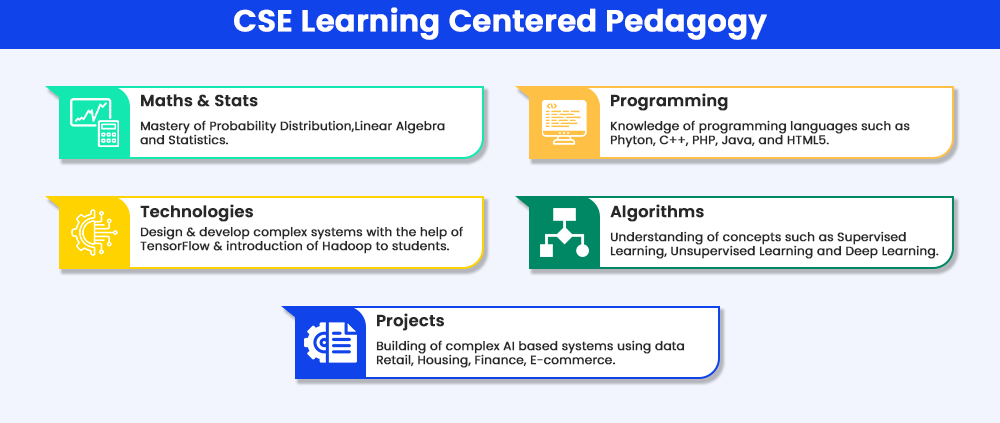
2) B Tech Mechanical Engineering
The mechanical Engineering branch of BTech stresses on creating and maintaining mechanical systems. Therefore, the subjects are comprised of thermodynamics, thermal engineering, production technology, and mechanics of machines. Click Here | B.Tech Mechanical Lateral Entry!
|
Year 1 |
Year 2 |
|
|
|
Year 3 |
Year 4 |
|
|
3) B Tech Electrical Engineering Syllabus
Electrical and Communication Engineering is building a strong foundation for learners in electronic communication systems. Hence, to improve the skills of the students are taught circuit design, control systems, and signal processing. Click Here | B.Tech Electrical Lateral Entry!
|
Semester 1 |
Semester 2 |
|
|
|
Semester 3 |
Semester 4 |
|
|
|
Semester 5 |
Semester 6 |
|
|
|
Semester 7 |
Semester 8 |
|
|
4) B Tech Civil Engineering Syllabus
Civil Engineering aims at designing, constructing, and maintaining physical structures. As a result, the curriculum focuses on learning associated with structural engineering, infrastructure, solid mechanics, and engineering drawings. Click Here | B.Tech Civil Lateral Entry!
|
Semester 1 |
Semester 2 |
|
|
|
Semester 3 |
Semester 4 |
|
|
|
Semester 5 |
Semester 6 |
|
|
|
Semester 7 |
Semester 8 |
|
|
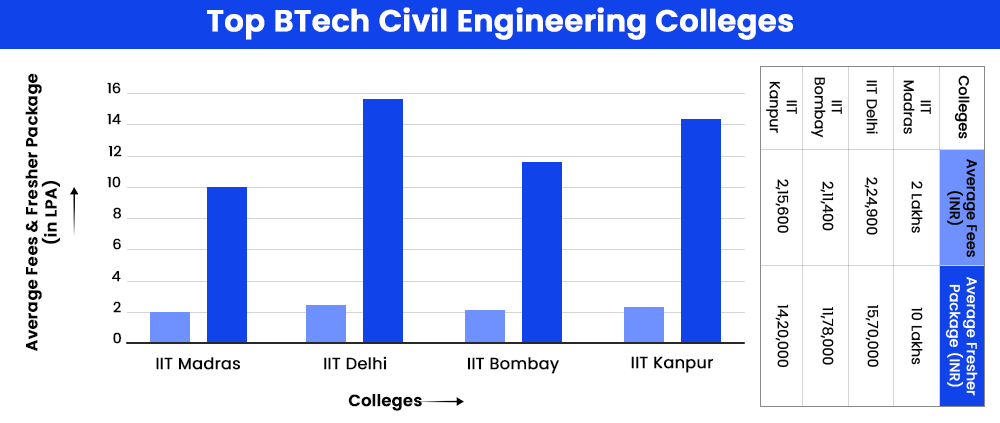
5) B Tech IT Syllabus
IT Engineering is all about understanding artificial intelligence and machine learning. The course study of BTech IT mainly comprises science, math, programming language, digital electronics, and electronic mathematics. Click Here | B.Tech IT Lateral Entry!
|
Semester 1 |
Semester 2 |
|
|
|
Semester 3 |
Semester 4 |
|
|
|
Semester 5 |
Semester 6 |
|
|
|
Semester 7 |
Semester 8 |
|
|
6) B Tech Chemical Engineering Syllabus
Chemical Engineering is that branch of the Bachelor of Technology that deals with operations and designs of chemical plants besides improving production. Consequently, the syllabus consists of a chemistry laboratory, fluids mechanics, and materials laboratory.
|
Semester 1 |
Semester 2 |
|
|
|
Semester 3 |
Semester 4 |
|
|
|
Semester 5 |
Semester 6 |
|
|
|
Semester 7 |
Semester 8 |
|
|
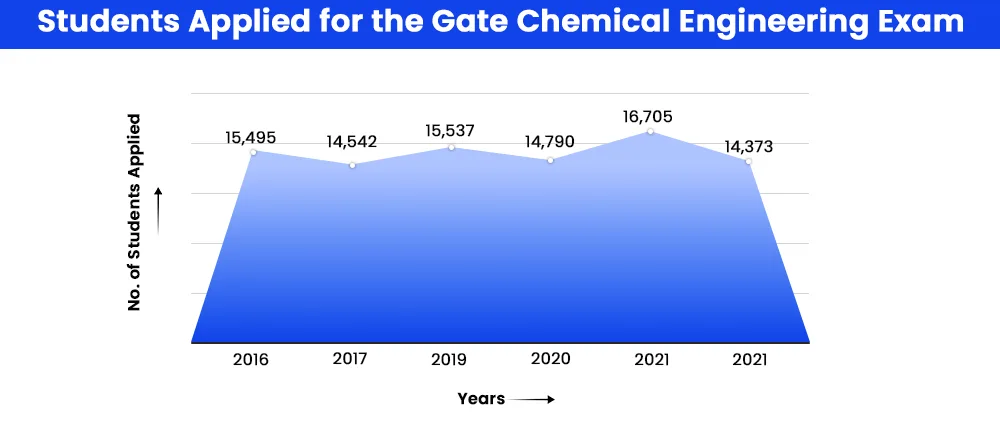
BTech Flexible Time Program
The BTech Distance program is strictly forbidden by UGC and AICTE, regulatory bodies. However, apart from BTech Regular, there are the BTech flexible problem courses that are introduced for the convenience of the learners who are unable to commit to the Regular BTech degree program.
Check the options available for such eager learners:
- BTech Part Time: According to the guidelines of the UGC, it is mandatory for the students to attend the classes if anyone is enrolling for the BTech Program. Suppose, a student can’t attend the class at regular time. For them, evening or weekend lecturers are organized. When it comes to duration, the b tech part time program is a 3-year course as they are straight away admitted to the 2nd year and the syllabus is similar to the BTech Regular.
- BTech After Diploma: The B.Tech After Diploma program is a ray of hope for the applicants holding a Diploma certificate in engineering to learn advanced skills and earn higher salaries. The duration of the engineering and technology program is 3 years. They have the privilege to get admission directly in 2nd year as they have completed their diploma plus have working experience.
- BTech for Working Professionals: A BTech degree can be earned by working professionals having diploma certificates and working experience of a minimum of 2 to 3 years. Such professionals can balance their higher education and employment commitments when enrolling in the BTech for Working Professional program. These applicants can complete the course in just 3 years as they have a valid diploma certificate or equivalent degree.
BTech Syllabus and Subjects for BTech Flexible Program
Similar to the BTech Regular Courses, the BTech Flexible Course syllabus consists of Core, Elective, and Lab subjects. All over India, engineering universities and colleges pay attention to the CBCS course structure that is guided by UGC.
Therefore, basic core subjects are the same as Mathematics, Physics, Mechanics, and Chemistry. Electives are based on individual preference, what specialization they have chosen for themselves. And based on that lab subjects are allocated to students. The BTech curriculum structure is:
- Core BTech Subjects
- Elective BTech Subjects
- Lab B Tech Subjects
- Internship
- 8 semesters (unless you enrolled for BTech After Diploma)
- Project Submission
Top Colleges for BTech for BTech Flexible Program
Applicants interested in enrolling in the flexible program for engineering can apply to these universities. These Universities permit students to study for the Btech program and work simultaneously to sustain their lives.
Conclusion
Students who apply for the BTech graduation program after the 12th or polytechnic certificate have to study the same syllabus and they are also awarded the same degree. The difference is that polytechnic diploma holders have foundation knowledge about the program unlike 12th pass-out students, hence they are promoted to the 3-semester of the graduation program.

